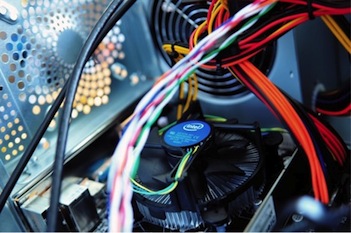
Demand left, right and center has meant that computer researchers are now under more pressure than ever to make devices faster and able to cope with more. And every so often there are breakthroughs which change and define the industry.
Computer scientists based in Germany and Singapore have collaborated in order to create a ‘resistive RAM chip’ that not only stores data but can also act as a computer processor. Using state-of-the-art memory chips known as Redox-based chips and resistive switching random access memory (ReRAM), these developments could lead to even faster and even thinner mobile devices.
The new developments work by essentially shortening the data transfer between the memory storage and the processor unit in order to work more efficiently. At present, the way they do this both slows performance and requires more power. So by shortening the time taken for the messages to be sent, it can double the speed of processors found in devices. Likewise, by making the memory chip perform general computing tasks and eliminating the need for the processor, space can be saved, leading to smaller, thinner and even lighter electrics.
The exciting thing about these developments however isn’t necessarily the speed increases and refinement of technology, but it could also help to lead to a plethora of new design possibilities for electronics and wearable tech.
So how does it work?
Traditional computer processors use the binary system to transfer data. This means that bits of data are represented as either a 0 or a 1. So the letter ‘A’ will be processed and stored as ‘01000001’, not ‘A’.
The prototype ReRAM circuit that has been built by the researchers however processes data in three states instead of two. Therefore it can store and process data as 0, 1 or 2, otherwise known as the Ternary number system. And according to the experts, because ReRAM uses different electrical resistance in order to store information, it could be possible to store data in an even higher number of states in the future.
The researchers are currently planning to develop the ReRAM to process more than its current three states – meaning that computing tasks could be sped up even further.
If your computer has started to slow down recently, why not upgrade it? It’s much easier – and cheaper – than you probably think! Browse our range of memory upgrades.









